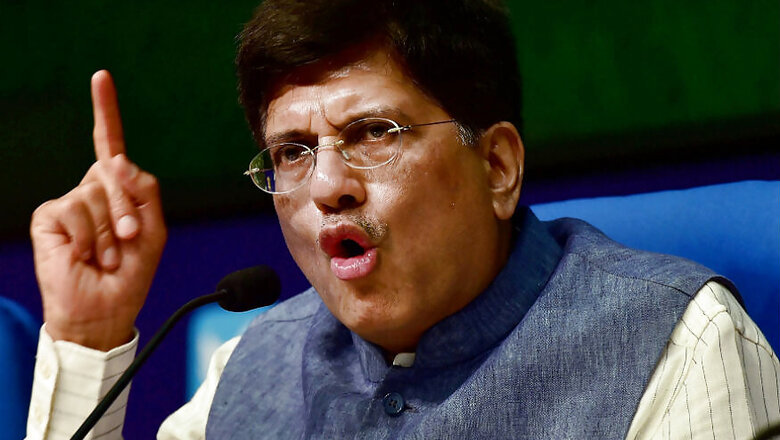
views
Railway Minister Piyush Goyal on Saturday indicated that the financial aspect of the ambitious bullet train project between Mumbai and Ahmedabad was being reviewed as the post-Covid world will entail "a lot of tightening of the belt".
Speaking at the India Global Week, he, however, said the Railways was "committed to these projects" and "we are at the stage of finalising plans and costing" for them.
"Certainly Covid-19 has been a little bit of spanner in terms of the ambitions that we had around the bullet train project and we are relooking at all the projects in terms of the post-Covid world that will entail a lot of tightening of the belt, a lot of cost cutting and improving our efficiencies and aligning ourselves to how travel and transport will work in the after Covid world. I really think that it's going to be a before-Covid and after-Covid affair," he said in response to a question on the status of the ambitious project.
Sources say talks are underway with Japan to explore if Indian companies can take on some of the highly specialised engineering jobs to bring down the cost and make the project more 'Make in India'.
The National High Speed Rail Corporation Limited, the implementing agency for the project, has reached out to the Indian industry to assess the requirement and capability of domestic players, they say.
Recently, NHSCRL also hosted a webinar for Indian companies and consultants to gauge their capacities, primarily in laying the 508-km track and steel bridges for the trains that will run at a speed of more than 300 kmph.
The Mumbai-Ahmedabad high-speed corridor -- which has a deadline of December 2023 -- has had to contend with issues ranging from protests by landowners and rising cost of the project due to the widening gap between the Indian rupee and the Japanese yen, as 80 per cent of the Rs 1 trillion needed to fund the project will come in the form of a 20-year Japan International Cooperation Agency (Jica) loan.
The NHSRCL has already floated 68 per cent of its civil work tenders, covering 345 km out of the total 508 km, along with a separate tender for fabrication of 28 steel bridges for the corridor in Maharashtra.
While the joint measurement survey of the land required for the project is about to complete, the agency has acquired 60 per cent land needed for the project (about 77% land in Gujarat, 80% in Dadar Nagar Haveli and 22% in Maharashtra), according to the NHSRCL.


















Comments
0 comment